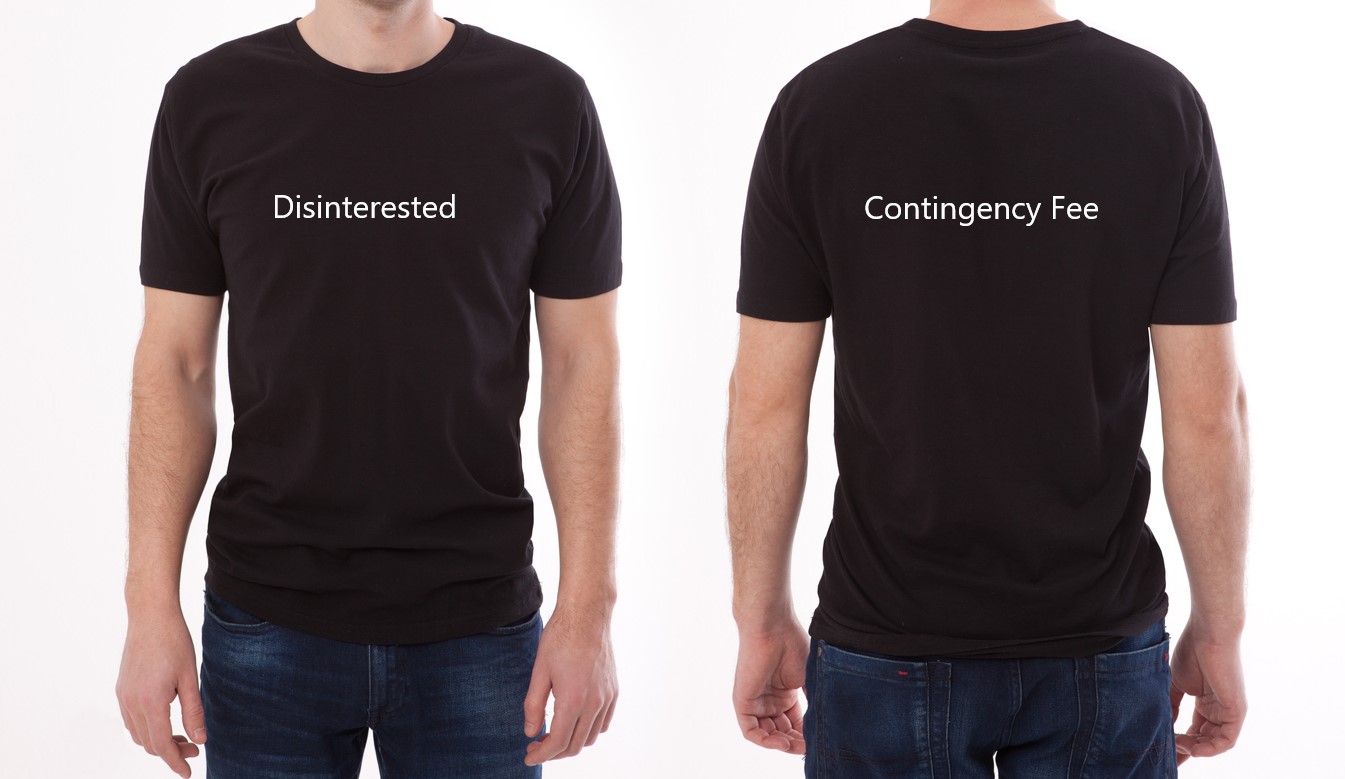Have you ever asked somebody if they can see “the handwriting on the wall?”1 You do not need to be a legal eagle to anticipate the probable outcome of this blog’s title question while reading the lower Florida appellate court’s ruling2 and how it phrased the certified question to the Florida Supreme Court:
CAN A FIDUCIARY, SUCH AS A PUBLIC ADJUSTER OR APPRAISER WHO IS IN A CONTRACTUAL AGENT-PRINCIPAL RELATIONSHIP WITH THE INSUREDS AND WHO RECEIVES A CONTINGENCY FEE FROM THE APPRAISAL AWARD, BE A DISINTERESTED APPRAISER AS A MATTER OF LAW?
I recently wrote in, “Disinterested” Appraiser Means One With No Pecuniary Interest in the Outcome of the Appraisal Award:
one can no longer say that Florida is a state where public adjusters can self-appoint themselves as appraisers or be retained as an appraiser on a contingent fee.
The lower appellate court all but indicated that their previous decisions on the case are no longer valid and would probably have been overturned, except for the manner that the insurance company raised the instant issue. The long and detailed concurring opinion noted:
For all of these reasons, I believe that had this case come to us on direct appeal from a final judgment in the trial court on an insurance cause of action or on a declaratory judgment, our decision would likely have been different.
I often suggest that “safe is better than sorry.” If you are a public adjuster, I would suggest you consider the current trend in appraisal litigation and ask the policyholder to appoint a hardworking individual who is not paid on a contingent agreement as the appraiser in Florida. Otherwise, you may find yourself delaying the appraisal and may end up a year from now having to appoint somebody else as the appraiser.
The concurring opinion also talks about the legal changes regarding the appointment of arbitrators on a contingent basis. Insurance company defense attorney Bill Berk first brought this point to my attention at the Windstorm Insurance Network Conference years ago. If the Florida Supreme Court rules as the concurring opinion argues, it shows there is a lot of value going to that conference where really smart people in the property insurance claims field make suggestions and observations which can help you keep on top of expected changes in this practice.
I pray that we will have a live Windstorm Conference next winter. It is hard staying cooped up with nobody around to argue face to face—even if it is with the likes of Bill Berk.
If you are a public adjuster, I strongly suggest that you register for a webinar, How Politics Affects The Future of Public Adjusting, Coverage Gaps Are Killers and Coronavirus Coverage Update, at 2 pm EST tomorrow. I will be presenting with Amy Bach of United Policyholders and Holly Soffer, who is the General Counsel for the American Association of Public Insurance Adjusters (AAPIA.). Here is a link to register.
Thought For The Day
My books are like water; those of the great geniuses are wine. (Fortunately) everybody drinks water.
—Mark Twain
_________________________________
1 The handwriting on the wall and the writing on the wall describes the signs of an approaching doom, a signal that some catastrophe is about to occur. Most often, the terms are used to indicate the ability or inability to understand that a catastrophe is approaching, as seen in the phrases read the handwriting on the wall or see the handwriting on the wall. These idioms come from a story in the Book of Daniel in the Old Testament of the Bible. In the tale, the king of Babylon is throwing a feast using vessels stolen from the Jewish Temple, blaspheming and worshipping idols. A hand appears and writes a mysterious message on the wall. The king calls upon Daniel to interpret the message for him. Daniel reads the handwriting on the wall, interpreting the message as a warning that the Babylonian king’s rule is coming to a swift end. Which immediately comes to pass.
2 State Farm Florida Ins. Co. v. Sanders, No. 3D19-927, — So.3d — (Fla. 3d DCA April 15, 2020).





